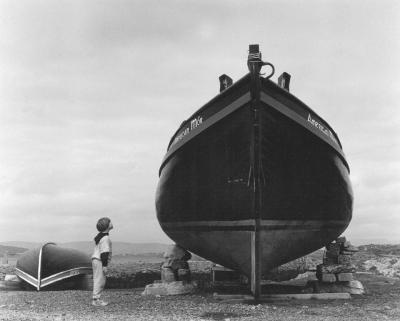CINEMA OF IRELAND COMES TO ROME

ROME-The 7th edition of ' IrishFilmFesta’, the Irish Film Festival, was presented in the picturesque and historic setting of Villa Spada on the Gianicolo, the seat of the Embassy of Ireland, an event of particular resonance programmed at the end of March at the House of Cinema in Villa Borghese.
Irish Ambassador Bobby McDonagh opened the introduction by thanking the organizers for their efforts, and in particular Susanna Pellis, the artistic director of the event. He also highlighted the role that the Irish film industry plays in the economy, as well as the ties between the two friendly nations, pointing out that no less than 250,000 Italians visit Ireland every year on average.
IrishFilmFesta was founded in 2007, with the intent to promote Irish film industry in Italy. Irish films, which have continuity of production only since the Eighties, are still poorly known: they rarely circulate abroad, and when they are able to do so, they are perhaps considered English, or American. So far, the only Irish filmmakers to have acquired some international popularity are Neil Jordan and Jim Sheridan. The cinema of the green island boasts however also other talents, and, especially in the last few years, has been charactersied by artistic variety, which deserves to be exported.
Organised in collaboration with the Irish Film Institute and with the support of Culture Ireland, Irish Film Board, Tourism Ireland, and sponsored by the Embassy of Ireland in Italy and the Province of Rome, IrishFilmFesta is produced by the cultural association Archimedia. Creator and Director of IrishFilmFesta is Susanna Pellis, an expert in Irish cinema.
The festival, which takes place at the Casa del Cinema in Rome, presents new films in preview and recovers some classics not yet released. In addition to the screenings - all in original language version with subtitles and all with free admission - the program includes presentations and meetings with Irish guests (directors, actors, screenwriters and producers), debates and special events.
As states Susanna Pellis, this time round although the #IRISHFILMFESTA has changed date and season, its intentions remain unaltered: the seventh edition of the festival continues as an independent, informa1 feast, dedicated to quality, and one quite happy to leave the red carpet rolled up in the corner. The organizers’ mission, besides, is to reflect the anti-celeb mentality of Ireland, a trait that shows through the films screened: all independent productions, expressions of some of contemporary Ireland's multifarious facets and of a cinema in evident, continuous expansion. This theme will be explored in depth during the opening conference, Meet Ireland on Screen, organized by IFF in conjunction with Enterprise Ireland and the Irish Film Board and with the precise intention of introducing the Irish audio-visual industry to Italy.
After that, it is over to images of Ireland: the liveliness of "The Stag", a comedy of farewell to machismo rather than to bachelorhood; the desolation and illegality of "Black Ice" by veteran Johnny Gogan, where the black ice in the title is the slippery asphalt on which illegal car races are run; the world of actors who still seek their fortune elsewhere ("The Callback Queen", which follows an Irish actress to London); that ever-peopled land of those who fight concern with optimism ("Run & Jump", directed by the outstanding debutant Steph Green and ruled over by the luminous figure of a mater familias). Then there is Northern Ireland, never truly cured of its Troubles, as we shall see in "Made in Belfast" and "Good Vibrations", as well as in the book "Eureka Street", all set in Six Counties' capita1 and screened on a day all its own, called #BelfastDay.
To complete the programme we have Neil Jordan's "Byzantium" (new vampires, but this time females), the shorts (the only competitive section, which has increased considerably thanks to the number of candidates this year) and the documentaries: "Atlantean" directed by Bob Quinn who questions the Celtic origins of the Irish and "Bernadette -Notes on a Politica1 Journey" directed by Lelia Doolan and which tells the story of the long political journey of Northern Irish activist Bernadette Devlin. It is to Quinn and Doolan and to their untiring work as cultural agitators, in fact, that the Irish cinema owes its birth. Also because of this it was decided to host both of them at this year's IRISHFILMFESTA along with Graham Cantwell, who will conduct an acting workshop alongside actress Amy Joyce-Hastings; while two actors, Ciarhn McMenamin and Stuart Graham, both from Belfast, will have a lot to tell us about the new artistic atmosphere one breathes today in this newly heartened city. Lastly, how could a festival devoted above all, to players, forget Peter O'Toole, the Connemara-born actor who has left an indelible, refined yet gentile and elusive mark on the history of world cinema? We shall remember him along with his daughter and equally talented actress, wonderful Kate O'Toole, this year's guest of honor.


